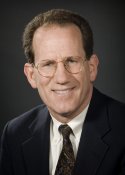Almost all children have times when their attention span short circuits, or their behavior veers out of control.
However, for some children, these types of behaviors are more than an occasional problem.
Children with attention-deficit/hyperactivity disorder (ADHD) have behavior problems that are so frequent and severe that they interfere with their ability to function appropriately on a daily basis.
To date, no convincing evidence has shown that a poor diet causes ADHD or that dietary supplements can be used to successfully treat the condition.
However, it stands to reason that an adequate diet is necessary for any child's healthy growth.
Proper nutrition, including an array of vitamins, minerals, amino acids, and essential fatty acids (EFAs), is particularly necessary in the first few years of life to support brain development and prevent certain neurological disorders.
Even among older children, a lack of certain dietary components, such as protein, or an insufficient number of calories can negatively affect a child's learning and behavioral abilities. And, vitamin or mineral deficiencies can certainly interfere with learning over the course of a school year. .
Nonetheless, healthy eating and family meals are lifestyle choices generally supported by the American Academy of Pediatrics.
Could there be something to the theories that certain supplements like fish oil and eliminating chemicals such as food coloring can help children with ADHD?
Guest expert, Dr. Andrew Adesman, discusses the very real possibility that you can help your child by adjusting their diet.

Can Dietiary Changes Help Kids with ADHD?
Guest
Info & Links: Andrew Adesman, MD
From the Show: Healthy Children
Summary: Could doing something as simple as improving your child's diet help with ADHD?
Guest Bio: Andrew Adesman, MD
 Dr. Adesman is Chief of Developmental & Behavioral Pediatrics at the Steven & Alexandra Cohen Children's Medical Center of New York of the North Shore-Long Island Jewish Health System in New Hyde Park, and Professor of Pediatrics at the Hofstra North Shore-LIJ School of Medicine.
Dr. Adesman is Chief of Developmental & Behavioral Pediatrics at the Steven & Alexandra Cohen Children's Medical Center of New York of the North Shore-Long Island Jewish Health System in New Hyde Park, and Professor of Pediatrics at the Hofstra North Shore-LIJ School of Medicine.Dr. Adesman received his Doctorate of Medicine from the University of Pennsylvania in Philadelphia and completed his Residency in Pediatrics at the Children's Hospital National Medical Center in Washington, DC. He also completed a Fellowship in Child Development and Rehabilitation at the prestigious Children's Hospital of Philadelphia. In addition to Board certification in Pediatrics, Dr. Adesman is Board certified in Neuro-developmental Disabilities and also Developmental & Behavioral Pediatrics. Dr. Adesman has authored many research and review articles on developmental disorders in children, and most recently, is the author of a new book focusing on common parenting myths, BabyFacts: The Truth about Your Child's Health from Newborn through Preschool. He also co-authored a book on adoptive parenting: Parenting Your Adopted Child: A Positive Approach to Building a Strong Family.
Dr. Adesman has been repeatedly included in the book, How To Find the Best Doctors: New York Metro Area and is repeatedly listed in New York Magazine's list of "Best Doctors in New York."
- Organization: American Academy of Pediatrics
- Guest Website: Healthy Children
More from this show . . .
Computer Feedback Provides Lasting Benefits for Students with ADHD Hygiene Basics: Teaching Kids How to Brush Their Teeth
Prev
Next
Computer Feedback Provides Lasting Benefits for Students with ADHD Hygiene Basics: Teaching Kids How to Brush Their Teeth
RadioMD is now
We’re rebranding and expanding!
RadioMD is joining forces with our new platform, PodcastHealth.com — your all-in-one destination for the best health, wellness, fitness, and medical podcasts.
A fresh new experience designed to help you discover, follow, and enjoy more trusted health content.
All Health Podcasts. All in one place.
Discover what’s new → PodcastHealth.com







